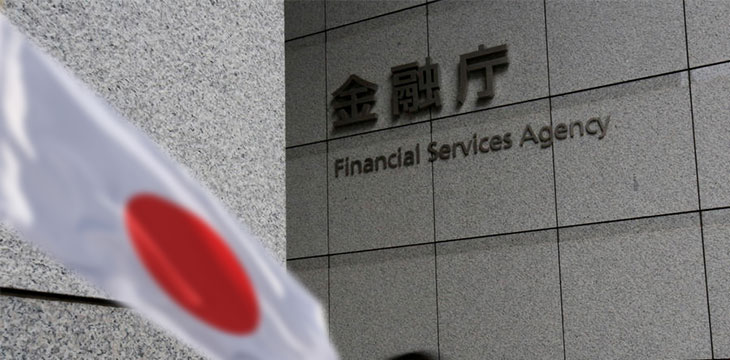Japan’s Financial Services Agency to Let Banks Buy and Hold Crypto Assets
Japan’s Financial Services Agency to Let Banks Buy and Hold Crypto Assets
By
Junia Wells
Last updated:
October 30, 2025
First Published:
December 2, 2025

Photo: Atlas21
A Landmark Shift in Financial Policy
Japan’s Financial Services Agency has taken a bold step that could redefine the relationship between traditional finance and cryptocurrency. The regulator announced its intention to allow banks and other licensed financial institutions to directly purchase and hold crypto assets on their balance sheets. This move represents a fundamental policy shift for Japan, a country historically known for its cautious approach to digital currencies.
Why the Decision Matters
For years, Japanese banks were restricted from direct involvement with cryptocurrencies, mainly due to concerns about volatility and financial crime. The new proposal signals growing confidence in the maturity of the crypto market and the country’s ability to manage its risks. By allowing banks to engage directly, Japan aims to enhance financial innovation while maintaining strong oversight and consumer protection standards.
Bridging Traditional and Digital Finance
This decision is expected to foster a new era of collaboration between traditional financial institutions and crypto service providers. Banks could soon integrate crypto trading, custody, and tokenized asset services within their offerings. This integration will not only expand investment opportunities for consumers but also legitimize the broader digital asset ecosystem within the Japanese economy.
Encouraging Institutional Participation
Institutional players have been waiting for clear regulatory frameworks before entering the crypto space at scale. Japan’s policy shift gives them the clarity and assurance they need. With banks now allowed to hold crypto assets, large investors are likely to follow, viewing Japan as one of the safest and most transparent markets for digital asset management. This institutional influx could further stabilize crypto markets and drive higher liquidity.
Boosting Economic Competitiveness
Japan’s new direction also has broader economic implications. The country has been competing with hubs such as Singapore and Hong Kong to establish itself as Asia’s most trusted digital finance center. Allowing banks to hold crypto assets gives Japan a competitive edge by merging its strong regulatory reputation with the innovation of blockchain finance. This could attract global fintech companies seeking a stable environment for expansion.
Addressing the Risks Through Regulation
The Financial Services Agency has emphasized that the move will come with strict guidelines. Banks will need to adhere to robust capital and liquidity requirements when dealing with crypto assets. They must also establish comprehensive risk management systems to monitor volatility exposure, cyber threats, and potential anti-money laundering violations. The regulator’s balanced approach aims to promote innovation without compromising financial stability.
Impact on Retail Investors
For everyday investors, this development could make crypto investment safer and more accessible. Customers may soon be able to buy and store cryptocurrencies directly through their bank accounts, reducing reliance on unregulated exchanges. This mainstream integration will likely improve investor confidence and encourage broader adoption among Japan’s tech-savvy population.
The Role of Blockchain Technology in the Transition
Behind this policy shift is Japan’s long-term vision of embracing blockchain as an economic driver. The government recognizes that blockchain infrastructure can enhance transparency, efficiency, and traceability in financial transactions. As banks adopt crypto custody and tokenized asset services, blockchain technology will form the backbone of Japan’s next-generation financial architecture.
Industry Reactions and Global Influence
The crypto community has largely welcomed the announcement. Many see it as a significant validation of digital assets by one of the world’s most respected regulatory bodies. Other nations may look to Japan as a model for safely integrating cryptocurrency into traditional finance. If successful, this framework could influence international standards on how banks interact with digital assets.
A Future Built on Trust and Technology
Japan’s decision to open the door for banks to buy and hold crypto assets reflects a forward-looking strategy that blends innovation with caution. By aligning traditional finance with blockchain technology, Japan is setting the stage for a financial future where trust, transparency, and technological advancement coexist. This marks not just a regulatory milestone but also a cultural shift in how nations perceive digital value in the modern economy.
Popular articles
Subscribe to unlock premium content
Disney’s Timeless Magic and How the Entertainment Giant Continues to Shape Culture and Innovation

Imran Khan’s Economic Missteps Amid Political Chaos in Pakistan

The Philippines’ Digital Shift How Remittances and BPO Are Fueling Growth

Disney’s Timeless Magic and How the Entertainment Giant Continues to Shape Culture and Innovation

Imran Khan’s Economic Missteps Amid Political Chaos in Pakistan

Disney’s Timeless Magic and How the Entertainment Giant Continues to Shape Culture and Innovation









